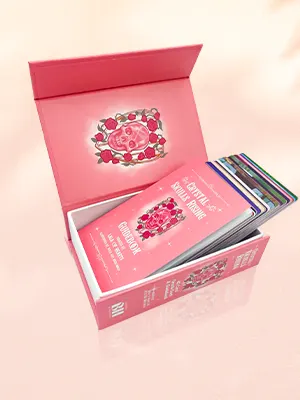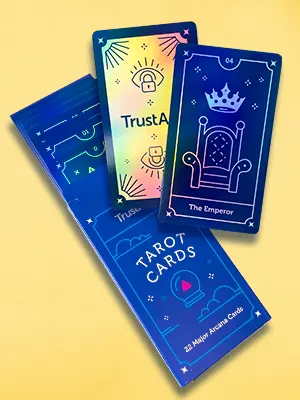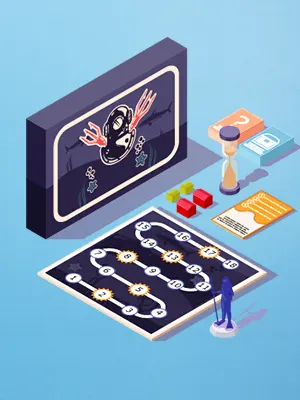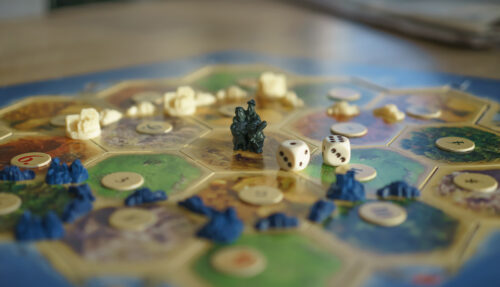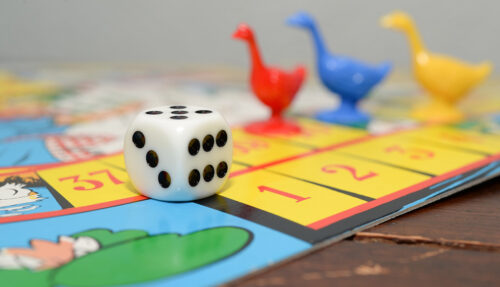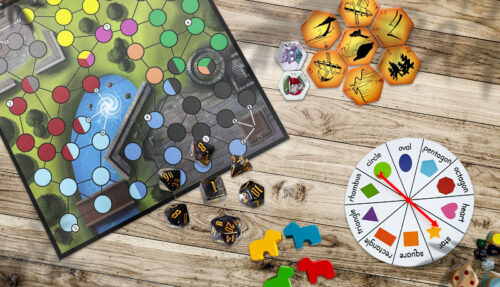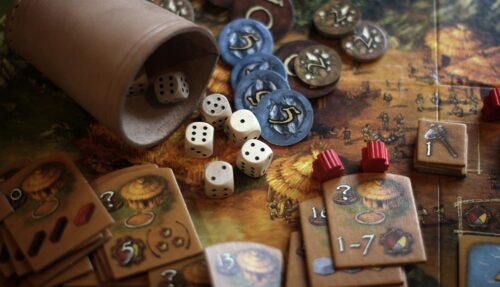The board game business is booming. If right now you're thinking of designing a board game to self-publish and sell, you couldn't have chosen a more opportune moment. We explain why and how to take advantage of the remarkable renaissance of tabletop games.
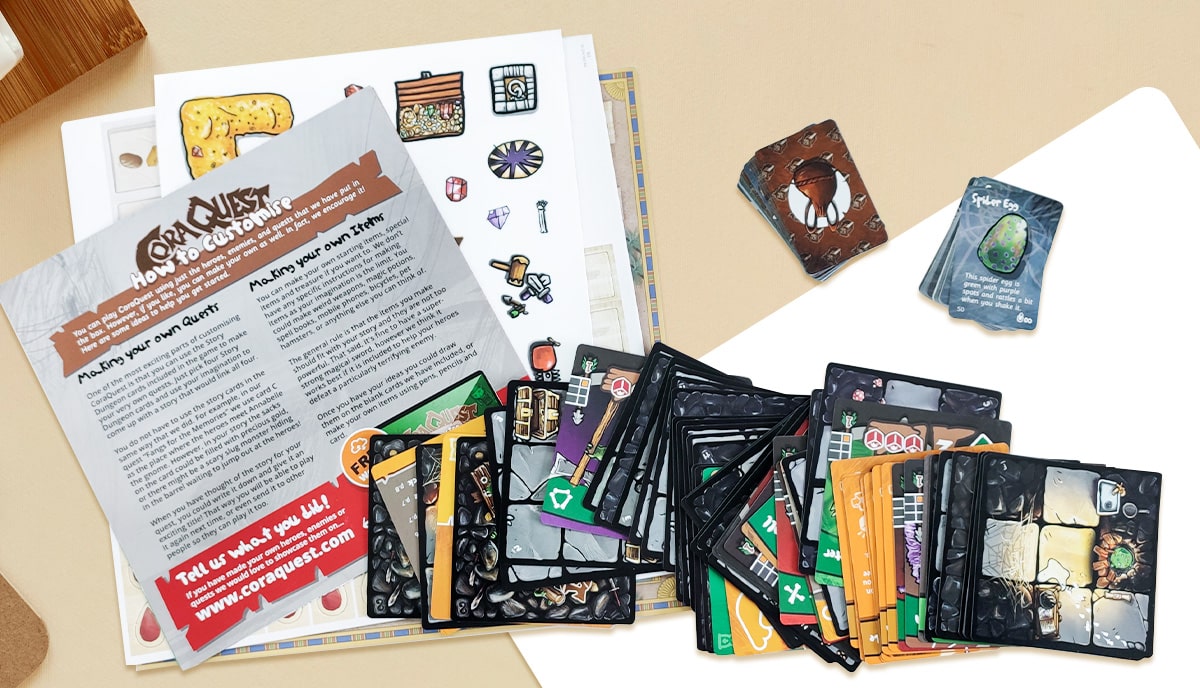
So, you want to design a board game, huh?
If you’re reading this, then you’re probably at least considering the idea of making your own board game. Maybe you just want to do it for fun, to test the waters of new hobby, or perhaps you have an entrepreneurial spirit and aim to publish or self-publish to make money from your creative enterprise. But whichever way you look at it, there’s never been a better time to strike out as a board game designer.
In North America, the UK, Australia, Europe, Japan, China, probably all over the world, there are more board games being invented, sold, and enjoyed than ever before. Gaming and associated conventions are seeing record attendance rates. And we challenge you to browse through even a fraction of the board game related Kickstarter campaigns.
Of course, this is a double-edged sword. On the one hand, it’s clearly a niche with a thriving and enthusiastic following; in other words, a large and active market. On the other hand, with so many new designers shouting for attention, it’s also more competitive than ever before. Nevertheless, the tools available to contemporary board game designers and the direct access the Internet gives to the market, means anyone with a little capital to invest, spare time, the creative and entrepreneurial spirit, and dedication to succeed, can have a go.
Whereas once upon a time you must knock at the doors of the big publishing houses and hope for the best, today those doors no longer exist and the gatekeepers have moved on. Anyone who thinks they have it in them to be a board game designer can be a board game designer.
This is all very exciting. But that anyone can be a board game designer doesn’t, sadly, mean that everyone will make a success of it. Whether success means a great, functional game which delights your friends, or a profitable part time or full-time business, there’s a lot to learn and new skills to gain. But let’s be clear about one thing: even board game designers who want to make money from their art are more deeply motivated by the love of games and playing games than they are by money. Never lose sight of the most important aspect of board gaming — to have fun! Which brings us to the next part of this post. Let’s find out why you — not anyone else or their uncle and aunt, but you — should design a board game.
A friendly inquisition
Before you design, you must understand why you want to create your own board game. It’s a lot of work and takes time — not to mention money — to make a great game people would love to play. To sustain you through all the hard work, fun as it is, you will need to keep coming back to your deep motivation. So, ask yourself the following questions. The answers should reveal to you why you really want to become a board game designer. Ready? Let’s go!
- Does the idea of making a board game seem like a lot of fun to you?
- Do you enjoy intellectual and creative challenges?
- Are you a passionate hobby gamer excited to make a contribution to the board game community?
- Are you determined to make a financial profit from your game design?
- Do you want to make a full-time living as an independent board game designer?
Thinking about why you should design a board game, the first three questions are probably the most important. To make a game that other people will want to play, and to carry you through the complex challenges of board game creation, you need to be able to answer yes to the first three questions. In other words:
- game making should seem like a lot of fun to you
- you should enjoy creative challenges
- and you should be motivated not only by self-interest — such as making money or boosting your ego — but by a genuine desire to contribute positively to the wider gaming community
The last two questions are really about your professional ambitions. There’s no reason you shouldn’t make money from your game design. Many people do. But the desire to make money is rarely sufficient motivation to enable you to become a successful board game designer. After all, there are much easier ways to make money!
We should point out that when we’re talking about board games here, we’re including several other genres of tabletop games such as dice games, card games, and role-playing games. There’s a lot of cross over between these different genres, even if some of them don’t actually involve any kind of physical board. But the catchall term board games is useful because most of these games deploy similar design elements, mechanics, thematic principles, and components.
Now that you understand why you should design a board game, you can easily define the direction of your ambition. What we mean is, what do you want your game to achieve? We’ll assume that you’re getting into board game design for fun, for the challenge, and because you’re passionate about the board game community. But let’s look just now at how things change if you want to add making money into that mix.
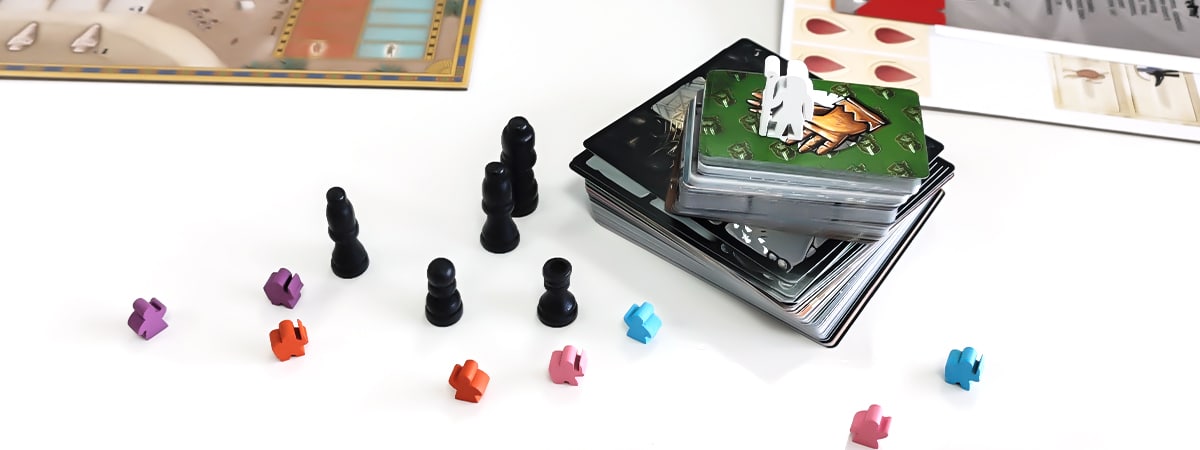
Making money from board game design
There are three routes you can take toward making your game financially profitable:
- you can sell the idea to a mainstream game publisher
- you can set up your own company and run a crowdfunding campaign on a platform such as Kickstarter
- you can self-finance and self-publish from start to finish.
There are advantages and disadvantages to each. And none of the three offer a guaranteed road to board game stardom and riches. We’ve written elsewhere about the pros and cons of taking the mainstream route versus self-publishing route. You can read that article here. But the main thing to remember is that none of these options are easy.
While it’s true that if you get a deal with a game publisher, you won’t have to handle all the complicated business side of being a game designer, it’s also true that you’ll need to sacrifice some of your independence and creativity. Likewise, if you set up your own crowdfunded company or go the pure self-publishing route, while you will have complete creative control, you’re likely to spend up to 80% of your time doing things that have nothing directly to do with board game design, such as admin, accounting, and other business -related activities.
Are you sure you want to be a designer and not a developer?
We often use the terms “board game designer” and “board game developer” interchangeably. But they are actually distinct roles. A designer is the original creative force behind the board game. They thought of the idea, came up with a theme, constructed the mechanics, play-tested, revised and refined, and probably created the first full prototype. The developer, on the other hand, may never create their own game but collaborate with designers to develop, improve, expand, and market a board game design.
Now, if you’re a one-person show, then you’ll probably play both of these roles. But as career options, they can be different. Once you’ve designed a few games and brought them to the point of making professional prototypes, even if they don’t have commercial success, they may open the door for you to work as a developer for a game publisher as they demonstrate your understanding of game design and your ability to develop a project prototype. Always worth considering if you want to work in the industry and come in by another route. And many who start out as game developers eventually go on to contribute their own successful designs.
Why you should design a board game
So, there you have it. You should design a board game — whatever your overall motives and ambitions — because it will stretch your creative imagination and give extra muscle to your problem-solving skills; it will give you a valuable role within the board game community; it will return tons of fun times and hours of engaging play; it has the potential to make you money, even a full-time career, if that’s what you want.
Are you ready to roll the dice?
If you want to create a board game design, we strongly recommend that you get involved in the board game community — if you’re not already — and play as many independent games as possible. Go check out game stores, your nearest game night, sign up to gaming clubs, check in to the best conventions. Indulge your enthusiasm for board games and get involved with the community.
Unless you’re an active member of the board game community, it’ll be a tough call to drum up the ideas, energy, and enthusiasm to put in the work needed to create a good board game people want to play. It also makes business sense if you decide to go the self-publishing route. It’s the community who will back you and eventually buy your game. So, being part of that community is vital if you want their support.
If you feel you’re ready to dive in deep, then read, How to Make Your Own Board Game: The Complete Guide for Beginners. It’s a long-form, in-depth post that covers every aspect of board game design and development. Bookmark it and come back to it several times as you work through it — as it’s 10,000 words long! — but it will teach you everything you need to know to create your own professional board game design.
When you’re ready to print your board game and manufacture your components, talk to us. We’ve got over 25 years’ experience in the industry, helping independent board game designers, self-published authors, and other creatives just like you to realize their dreams. It’s free to talk and when you’re ready, we’ll give you a no-obligation quote on the work, so that you know upfront exactly what’s involved. We can’t wait to work with you!

